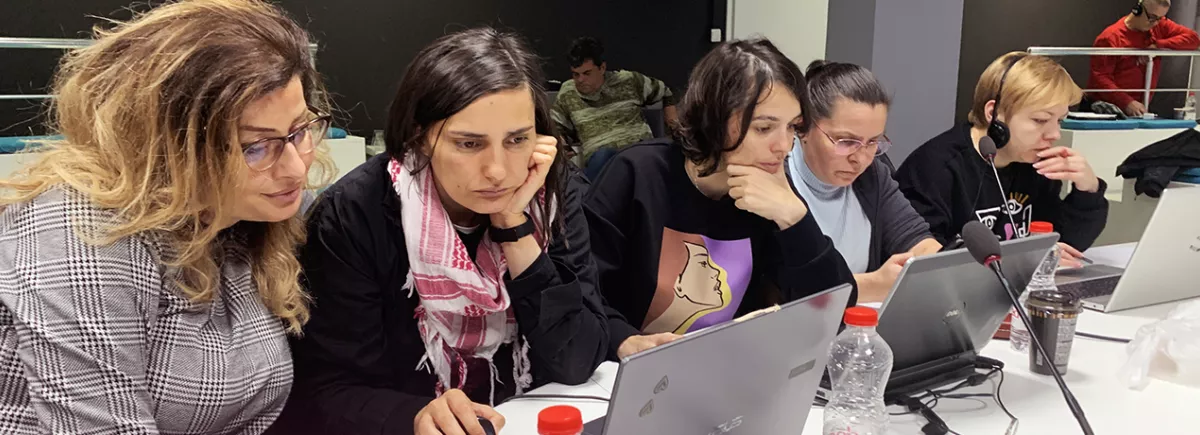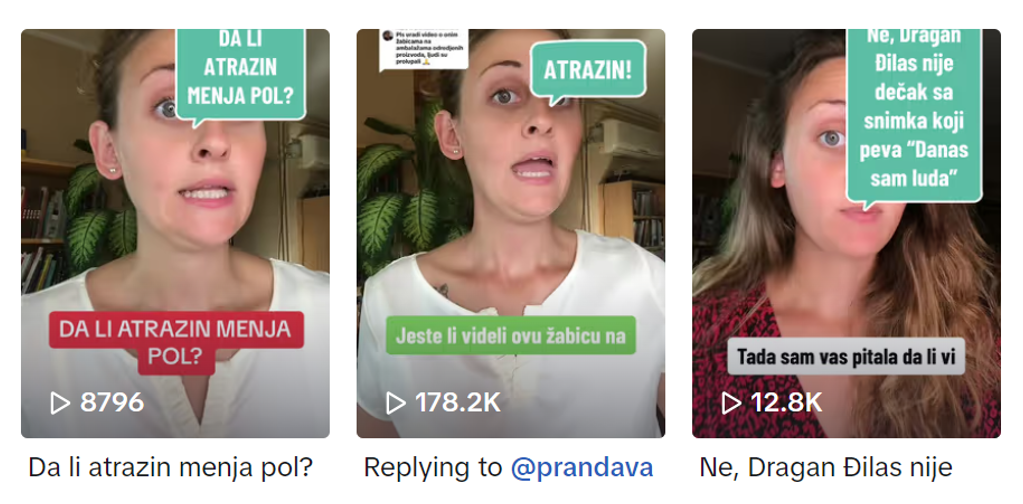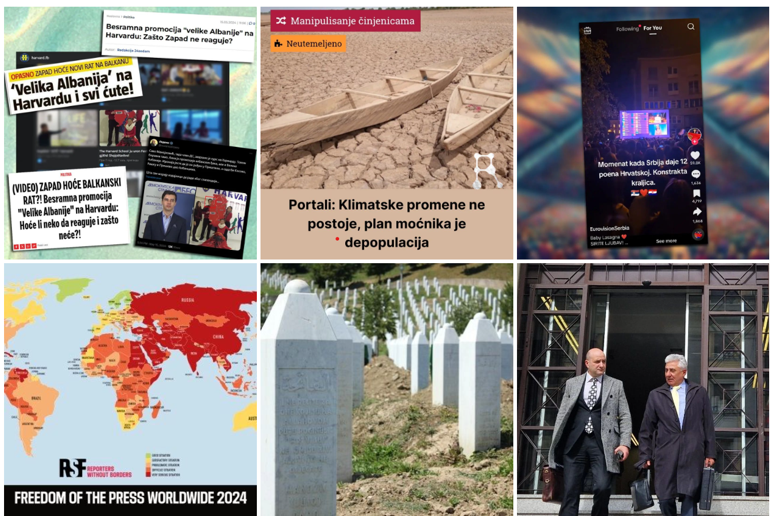
Strengthening the fight against disinformation in the Western Balkans: regional cooperation for reliable information
Related project
Balkan ProductionsIn the Western Balkans, disinformation poses a persistent threat to stability and social cohesion. It fuels political tensions and exacerbates ethnic divisions, making a collective and strategic response crucial. The "Combatting Disinformation in the Western Balkans" project, funded by the European Union and implemented notably by CFI since October 2023, addresses this challenge. With a mission to strengthen local media's capacity for fact-checking and cross-border investigations, CFI has supported eight partner organizations across the region.
At the intersection of technological innovation, journalistic training, and civic awareness, this initiative offers a holistic response to the challenges posed by disinformation. It focuses on two main objectives: developing fact-checking units and supporting transnational investigations on shared issues.
Modernizing Journalistic Practices for Better Citizen Engagement in Combating Fake News
The project's partners have heavily invested in modernizing journalistic tools and methods. FakeNews Tragač, managed by the Novi Sad School of Journalism (NSSJ) in Serbia, is a prime example of this approach. By using tools like BuzzSumo to analyze media trends and Photoshop to enhance the visual impact of articles and posts, NSSJ has transformed the presentation of its factual content. As a result, the number of citizens reached by these messages has doubled the initial targets, reaching nearly 1,000,000 people on its website and social media platforms like TikTok.

Hibrid.info in Kosovo also launched a digital campaign focused on educating citizens to recognize and avoid disinformation traps. Through infographics on social media and newsletters reaching thousands, this outlet simplified complex concepts like distinguishing opinion from fact or recognizing confirmation biases in media.
A distinctive feature of this project is its participatory approach. Radio Kontakt Plus in Kosovo incorporated interactive tools into its strategies to combat fake news. By creating a plateform where citizens can report suspicious information, Radio Kontakt Plus not only solidified its role as a trusted media source but also actively engaged local communities. This initiative's impact was amplified by explanatory videos and thematic podcasts.
Cross-Border journalism: dissecting misleading narratives through regional collaboration
Disinformation knows no borders, and the project emphasized transnational investigations to expose its scope. For instance, a collaboration between the Center for Democratic Transition (CDT) in Montenegro and the Novi Sad School of Journalism in Serbia resulted in an analytical report on false climate narratives in both countries. These investigations highlighted discourses that downplay or deny climate change impacts, fueling public inaction. The report, supported by explanatory videos and an online campaign, reached over 120,000 citizens in the region.
Another notable example is the documentary produced by BIRN Kosovo, titled "Documentation of the Russian Influence in the Balkans." This production examines the impact of Russian propaganda narratives in several Balkan countries, including Serbia, Montenegro, and Kosovo. By analyzing specific cases, such as parallels drawn between NATO’s 1999 intervention and the invasion of Ukraine, the documentary sheds light on how these narratives manipulate public opinion. Broadcast on national channels and digital platforms like YouTube, the investigation garnered nearly 100,000 views and impressions, raising awareness among diverse audiences.
Raising awareness to build resilience among citizens
Young people, often the primary victims of fake news on social media, were central to the project's strategies. For example, KRIK produced posts and short videos tailored to Instagram and Facebook Reels formats, addressing topics such as the dangers of medical disinformation, school violence, climate change, and the manipulation of political narratives. These youth-oriented materials generated thousands of interactions.

Moreover, awareness efforts extended beyond the digital sphere to reach broader audiences. Public discussions, organized by partners like CDT, brought together journalists, policymakers, and civil society members to discuss the impact of disinformation on key topics such as elections. These discussions were covered by local media, further amplifying their reach.
The "Balkan Productions" project demonstrates that concerted and inclusive actions can make a real impact in combating disinformation. By modernizing journalistic practices, engaging citizens, and promoting cross-border collaborations, this initiative has helped create a resilient media ecosystem in the Balkans.
However, the fight against disinformation is far from over. It requires constant vigilance and collective mobilization from all stakeholders—journalists, institutions, and citizens—to ensure access to reliable information, a cornerstone of democracy and peace.


